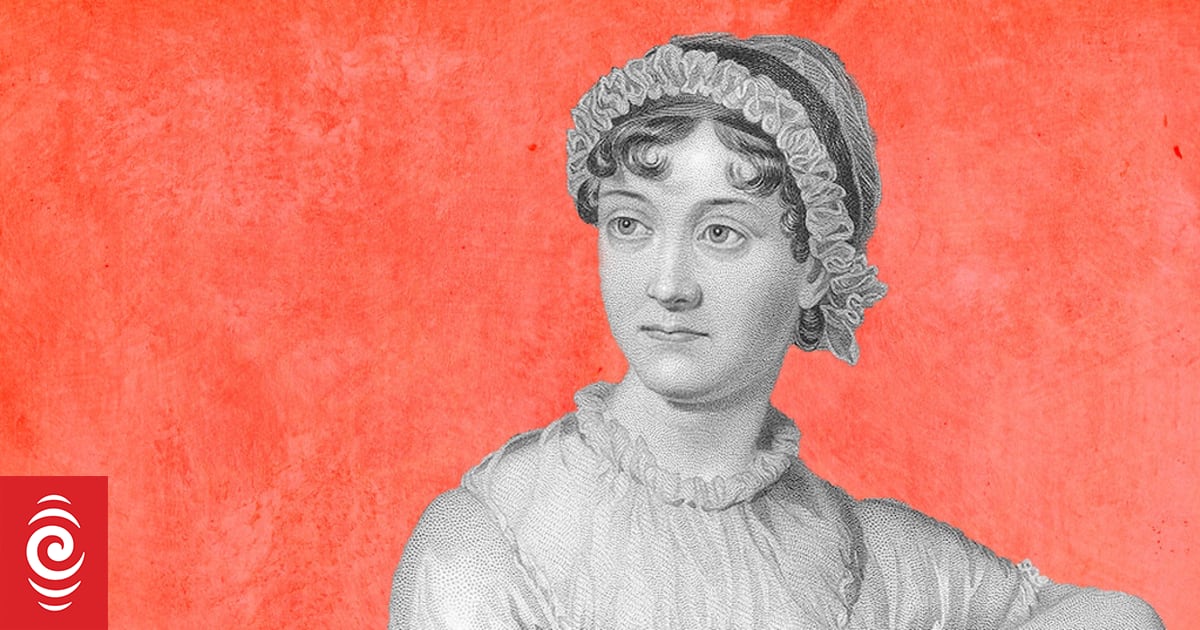World
Experts Clash Over Jane Austen’s Most Endearing Heroine

To celebrate the 250th anniversary of Jane Austen‘s birth, a group of seven scholars have engaged in a spirited discussion to determine her most beloved heroine. Each expert has made a case for a different character, highlighting the unique qualities that make them memorable. Readers are invited to vote for their favorite heroine in a poll at the end of the article, contributing to this lively debate.
Elinor Dashwood: The Voice of Reason
Promoted by Julie Taddeo, a research professor of history at the University of Maryland, Elinor Dashwood from “Sense and Sensibility” embodies wisdom and restraint. Despite being just 19, Elinor navigates the harsh realities of her family’s financial instability with grace. Unlike her emotional sister, Marianne, Elinor handles heartbreak with maturity. Taddeo argues that Elinor’s capacity for deep love and her dedication to family make her a heroine worth celebrating. While Marianne marries Colonel Brandon, Elinor ultimately finds happiness with Edward Ferrars, raising questions about his worthiness.
Emma Woodhouse: The Matchmaker with a Twist
James Smith, a senior lecturer in literature at Royal Holloway, University of London, champions Emma Woodhouse. Known for her misguided matchmaking and self-assured demeanor, Emma’s journey is marked by her attempts to manipulate reality to suit her desires. Smith notes that her flaws, stemming from ignorance rather than malice, allow for both comedic and poignant moments. By the end of her story, Emma’s growth leads her to recognize her mistakes and seek redemption.
Fanny Price: The Subversive Heroine
According to Emma Sweeney, a senior lecturer in creative writing at The Open University, Fanny Price from “Mansfield Park” deserves recognition despite being labeled as “insipid” by Austen’s own mother. Fanny’s resilience in the face of cruelty and neglect makes her a sympathetic character. Sweeney emphasizes that Fanny’s refusal to conform to societal pressures, particularly regarding marriage, and her willingness to challenge her privileged relatives show her strength and depth.
Lady Susan: The Charming Manipulator
Promoted by Leigh Wetherall Dickson, an associate professor in 18th and 19th-century literature at Northumbria University, Lady Susan stands out for her audacity and charm. This character from “Lady Susan” is unapologetically self-serving, pursuing her interests with a mix of wit and cunning. Dickson argues that Lady Susan’s ability to manipulate social norms while remaining compelling makes her a fascinating figure in Austen’s pantheon of characters.
Anne Elliot: The Unassuming Hero
In a letter to her niece, Austen referred to Anne Elliot as “almost too good for me,” as noted by Katherine Halsey, professor of English studies at the University of Stirling. Anne is characterized by her intelligence, loyalty, and quiet bravery. Halsey highlights Anne’s ability to endure personal trials without bitterness, making her a model of grace under pressure and a refreshing presence in a world filled with more flamboyant characters.
Catherine Morland: The Everywoman
Advocated for by Victorina Gonzalez-Diaz, a reader in English language at the University of Liverpool, Catherine Morland from “Northanger Abbey” represents the relatable heroine. Unlike her more glamorous counterparts, Catherine’s charm lies in her ordinariness and vivid imagination. Gonzalez-Diaz points out that Catherine’s journey illustrates that happiness does not require extraordinary talent or wealth, but rather a kind heart and a touch of whimsy.
Elizabeth Bennet: The Timeless Rebel
Finally, Nada Saadoui, a PhD candidate in English literature at the University of Cumbria, champions Elizabeth Bennet as the embodiment of Austen’s revolutionary spirit. Elizabeth’s refusal to conform to societal expectations, particularly regarding marriage, sets her apart. Her wit and intelligence empower her to seek love based on mutual respect rather than obligation. Saadoui asserts that Elizabeth’s journey resonates with modern readers, making her an enduring symbol of independence and self-awareness.
As the debate continues, readers are encouraged to participate in the poll and share their thoughts on which heroine they believe deserves the title of Austen’s ultimate character. This celebration not only highlights the complexity of Austen’s women but also invites reflection on their relevance in contemporary society.
-

 World3 months ago
World3 months agoTest Your Knowledge: Take the Herald’s Afternoon Quiz Today
-

 Sports3 months ago
Sports3 months agoPM Faces Backlash from Fans During Netball Trophy Ceremony
-

 Lifestyle3 months ago
Lifestyle3 months agoDunedin Designers Win Top Award at Hokonui Fashion Event
-

 Sports3 months ago
Sports3 months agoLiam Lawson Launches New Era for Racing Bulls with Strong Start
-

 Lifestyle3 months ago
Lifestyle3 months agoDisney Fan Reveals Dress Code Tips for Park Visitors
-

 Health3 months ago
Health3 months agoWalking Faster Offers Major Health Benefits for Older Adults
-

 World3 months ago
World3 months agoCoalition Forms to Preserve Māori Wards in Hawke’s Bay
-

 Politics3 months ago
Politics3 months agoScots Rally with Humor and Music to Protest Trump’s Visit
-

 Top Stories3 months ago
Top Stories3 months agoUK and India Finalize Trade Deal to Boost Economic Ties
-

 Entertainment3 months ago
Entertainment3 months agoExperience the Excitement of ‘Chief of War’ in Oʻahu
-

 World3 months ago
World3 months agoHuntly Begins Water Pipe Flushing to Resolve Brown Water Issue
-

 Science3 months ago
Science3 months agoNew Interactive Map Reveals Wairarapa Valley’s Geological Secrets









